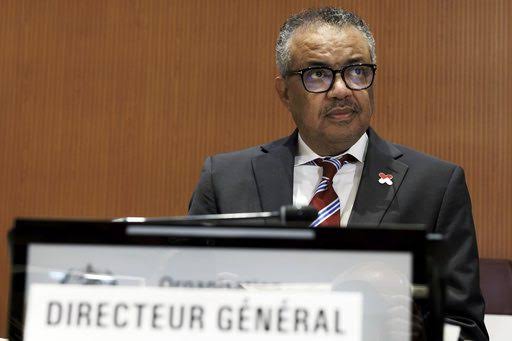After two years of intensive negotiations – including long nights this week – the World Health Assembly (WHA) finally passed amendments to the International Health Regulations (IHR) and committed to completing pandemic agreement talks within a year.
After failing to agree on the amendments before WHA opened on Monday, member states have been racing to the finish in a drafting committee during this week in meetings that often went into the early hours.
“Tonight we have all won and the world has won. You have made the world safer,” said a hoarse WHO Director-General Dr Tedros Adhanom Ghebreyesus, who lost his voice during the late-night sessions.
The IHR is a legally binding international instrument aimed at preventing the international spread of disease, and requires countries to conduct surveillance for potential international health threats of all kinds and report those to WHO.
The COVID-19 pandemic showed weaknesses in the IHR, including that it did not mention “pandemic”. Member states submitted over 300 proposed amendments to the Working Group on Amendments to the IHR (WGIHR), chaired by New Zealand’s Dr Ashley Bloomfield and Dr Abdullah Asiri of Saudi Arabia.
“The amendments to the International Health Regulations will bolster countries’ ability to detect and respond to future outbreaks and pandemics by strengthening their own national capacities, and coordination between fellow states, on disease surveillance, information sharing and response,” said Tedros.
The amendments include the definition of a “pandemic emergency” – the highest level of alarm – that will trigger more effective international collaboration in response to a disease outbreak that may become a pandemic.
“Solidarity and equity on strengthening access to medical products and financing” will be strengthened by a “coordinating financial mechanism” to help to “equitably address the needs and priorities of developing countries” to prevent, prepare and respond to pandemics
A States Parties Committee will be set up to facilitate the effective implementation of the amended Regulations, including the creation of National IHR Authorities to improve coordination of implementation of the Regulations within and among countries.
“The experience of epidemics and pandemics, from Ebola and Zika to COVID-19 and mpox, showed us where we needed better public health surveillance, response and preparedness mechanisms around the world,” said Bloomfield, who also co-chaired the drafting group.
Countries also agreed to extend the mandate of the Intergovernmental Negotiating Body (INB) established in December 2021, to finish its work to negotiate a pandemic agreement by the World Health Assembly in 2025, or earlier if possible at a special session of the Health Assembly in 2024.
“There was a clear consensus amongst all member states on the need for a further instrument to help the world better fight a full-blown pandemic,” said Precious Matsoso of South Africa, co-chair of the INB and drafting group.
Member states generally expressed satisfaction with the final agreement, with the European Union and China describing it as proof of the success of multilateralism.
However, Ethiopia – representing the 47 African member states and Egypt – urged all countries to use the momentum from the adoption of the IHR amendments to propel agreement on the pandemic accord. The INB meets again in July.
When parallel negotiations on a new pandemic agreement sailed into heavy water, there was a risk that the IHR amendments might become a casualty in the bargaining process – particularly from African member states pursuing equitable access to health products in the pandemic agreement.
They feared that the powerful Western countries pushing for the IHR to be passed – the US, European Union, Japan and the UK – would be less inclined to continue negotiating in good faith on the pandemic agreement once the IHR amendments have been passed.
Meanwhile, Slovakia dissociated itself from the resolution, and Russia and Argentina said they reserved the right to implement amendments – or not – according to their national sovereignty. Costa Rica also expressed reservations about the extension of the INB’s mandate.

